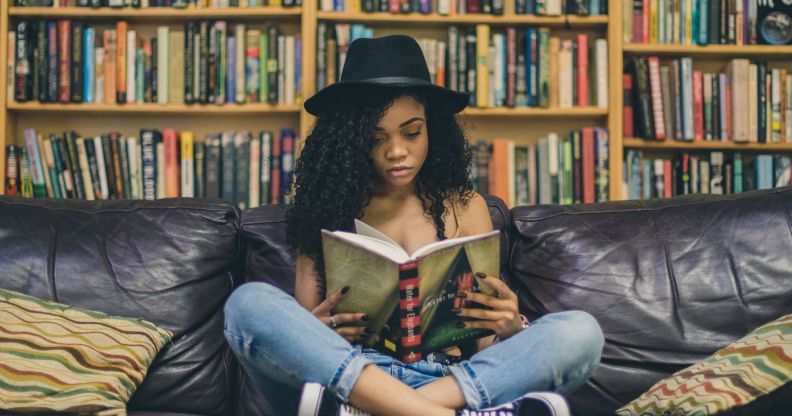Library creates brilliant map of LGBTQ+ authors to help queer people find their next read

Barbican Library has created a map of LGBTQ+ authors. (Unsplash)
Queer bookworms, rejoice: the Barbican Library has created a map of the world’s best LGBTQ+ authors, making it easier for people to source new queer books to read.
The map includes more than 100 queer authors with work across the literary field.
It’s colour-coded and designed similarly to the London Underground map, segmenting the authors into general fiction, plays, essays, memoir, science fiction and poetry.
On the fiction line are authors including Heartstopper’s Alice Oseman and Andrew Sean Greer, writer of the Pulitzer Prize winning novel Less.
Leaning into the tube line aesthetic, the map highlights which writers cross the boundaries between two genres.
Trans author Juno Dawson and Real Life writer Brandon Taylor, for example, are noted as writing both non-fiction and essays, while writers including Virginia Woolf and Roxane Gay are categorised under memoirs, essays, and fiction.
Originally published on Twitter in February, LGBTQ+ History Month, the Barbican Library shared an updated version after asking followers for suggestions. William S. Burroughs, bell hooks and Simone De Beauvoir were all added.
Mother’s Boy writer Patrick Gale shared his joy at being included on the map, writing on Twitter: “So happy to be a stop between Sarah Waters and Alice Oseman! I hope it’s a stretch with daylight and garden views.”
Emily Noble’s Disgrace author Mary Paulson-Ellis responded to the map with: “Wow, this is a brilliant map! Feel honoured to be in such splendid company.”
All the authors noted on the map have their works available to borrow from the library, based in London.
The Barbican celebrating LGBTQ+ authors comes as sales of LGBTQ+ books soar.
However, there is a growing right-wing movement against the dissemination of queer literature.
Particularly in the US, queer authors such as George M. Johnson and Maia Kobabe are seeing their books banned from schools and public libraries.
How did this story make you feel?

